Periodontal disease
Periodontal disease treatment cost
| Periodontal treatment | Mong Kong and Jordan clinic price | Central clinic price |
|---|---|---|
| Root planning for single tooth | $500 (per tooth) | $500 (per tooth) |
| Root planning for all teeth | $6000 | $8000 |
| Surgical root planning for single tooth | $3000 (per tooth) | $5000(per tooth) |
| Periodontal charting | $500 | $500 |
The above price includes the first consultation, local anesthesia, deep cleaning and medications
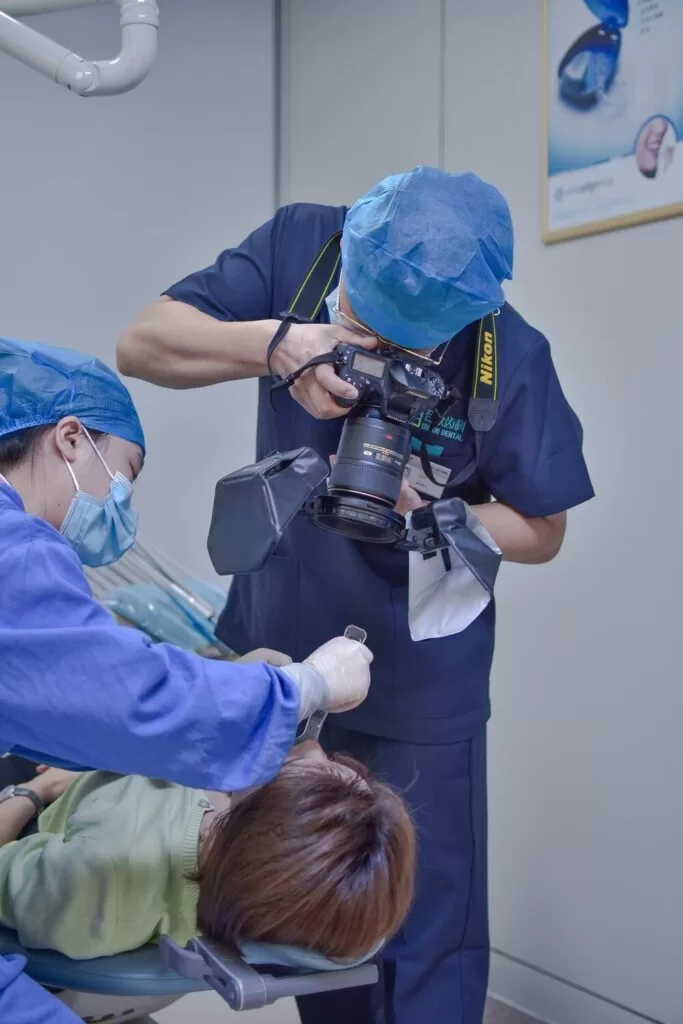
Comprehensive oral examination
Our dentist will first perform a comprehensive oral examination, including tooth decay and preliminary periodontal disease examination, to ensure that other dental problems are not overlooked. The doctor will then take a picture of your mouth and record it.
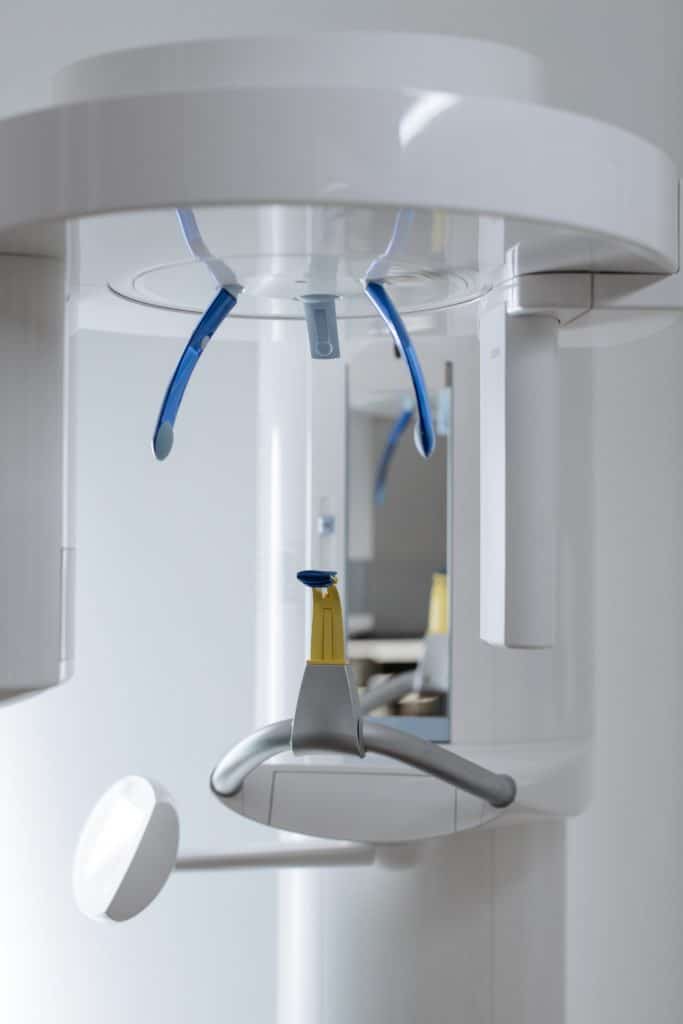
Orthopantomogram OPG
We take a full X-ray of each patient with moderate to severe periodontal disease to help diagnose periodontal disease and develop treatment plans.
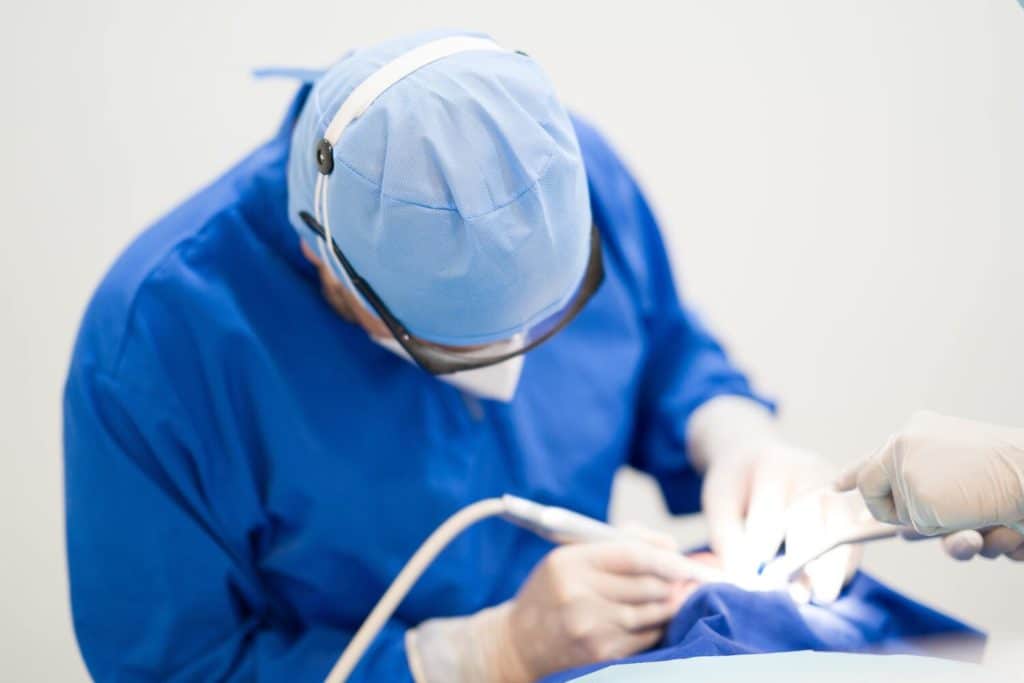
Comprehensive periodontal examination
If your initial periodontal examination reveals that your teeth have periodontal pockets deeper than 3.5mm, your doctor will perform a comprehensive periodontal chart to record the depth of periodontal pockets, flesh atrophy and tightness.
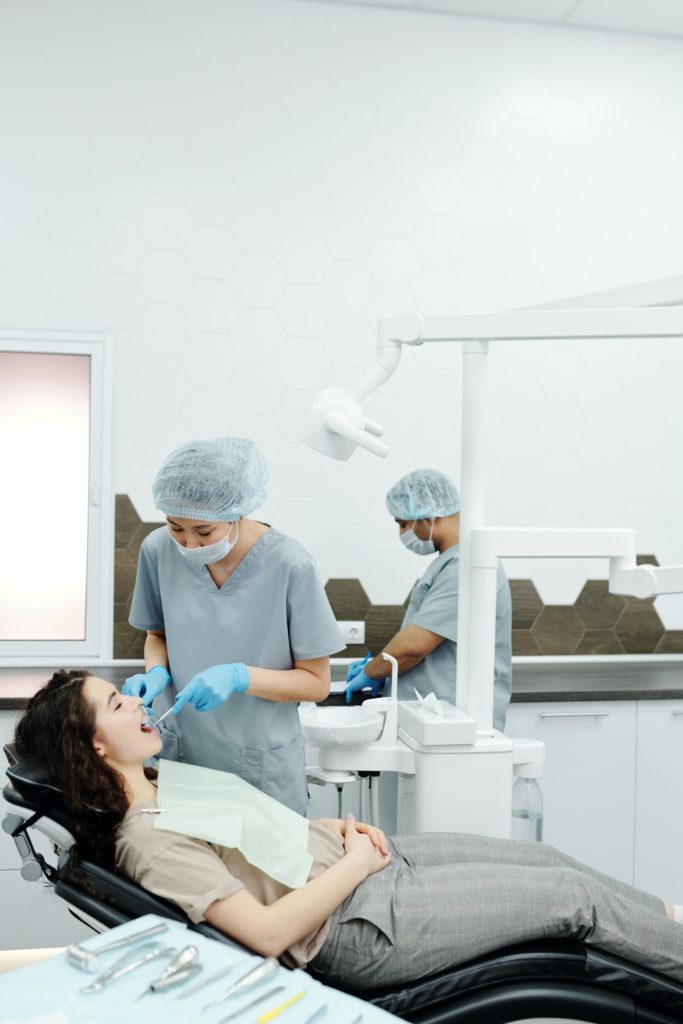
Treatment of periodontal disease
Depending on the results of your comprehensive periodontal disease record, we will perform appropriate periodontal treatment such as non-surgical deep cleaning. Each deep cleansing session is usually done left and right to make sure it doesn't affect your eating much.

Home Oral Care Guidelines
After periodontal treatment, we will provide you with oral care improvement guidelines so that you can keep your tooth cavity clean at home and keep periodontal disease under control.

Follow-up
After three months of periodontal treatment, you will need to come back for follow-up consultations to ensure that your periodontal disease is well received.
What is periodontal disease?
Periodontal disease refers to diseases of tissues near teeth, including gingivitis and periodontitis. The most common cause is inadequate oral care, which causes long-term inflammation of periodontal tissue, while smoking and uncontrolled diabetes also increase the risk of periodontal disease. Studies have shown that periodontal disease increases the risk of heart disease, so its severity cannot be ignored.
Initial symptoms of periodontal disease include redness and bleeding of the flesh, and some smokers may be more likely to have no symptoms at all. If the condition is more severe, your gums will recede, you will have breath problems, your bite will be weak, and your teeth will be more likely to gradually loosen. Therefore, you must have regular oral check-ups to deal with the problem in the early stages of periodontal disease, if the periodontal disease reaches a severe level, the loose tooth may only be able to be extracted.
According to government statistics in 2011, 98.6% of adults between the ages of 35 and 44 had bleeding teeth. 39.6% of adults have periodontitis. It can be seen that periodontal disease is a relatively common disease in Hong Kong, and if patients can seek medical attention if they have early periodontal disease symptoms, they can reduce the number of tooth loss caused by periodontal disease in the future.
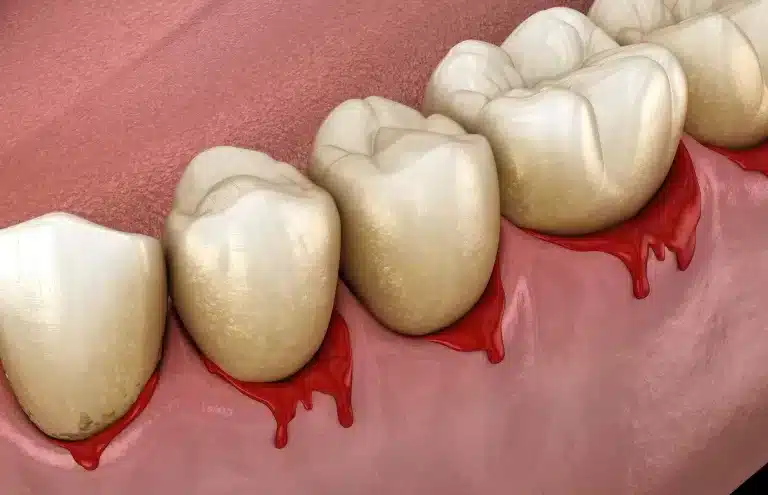
Causes of periodontal disease
Periodontal disease is mainly caused by bacteria. There are a large number of bacteria in the human mouth, and some of them can cause periodontal disease. If the bacteria stay on the teeth for enough time, they will form a dental membrane. When the dental membrane calcification, it is converted into tartar. Tartar makes it easier for bacteria to grow on its surface and inflames nearby tooth flesh. When the tooth flesh is inflamed, the tooth flesh will swell and bleed. If the flesh is inflamed for a long time, the flesh and bone will slowly shrink, leaving the teeth exposed, and eventually leading to loosening and loss of teeth.
Therefore, if the causes of periodontal disease can be solved, the risk of periodontal disease can be greatly reduced. Regular dental cleaning and scaling will reduce the accumulation of bacteria and reduce the chance of periodontal disease.
In addition to the causes of periodontal disease mentioned above, there are also risk factors that increase the chances of developing periodontal disease. Common risk factors are as follows:
- Smoking
- Diabetes
- Pressure
- Genetic factors
- Irregular teeth
- Poor oral care
- Hormonal factors
- drugs
Periodontal disease symptoms
There are many symptoms of periodontal disease, and each patient may have different conditions, but the most common are the following:
- Halitosis
- Swollen and painful tooth flesh
- Bleeding from the flesh of the teeth
- Weak chewing
- Loose teeth
- Atrophy of the flesh of the teeth
- Sensitive teeth
- Occlusal changes
If you already have the above periodontal disease symptoms, you should seek medical attention as soon as possible, who will treat the symptoms of periodontal disease at the beginning of the ontal disease to deal with the causes of periodontal disease, so as to avoid irreversible damage.
Classification of the degree of periodontal disease
In 2017, periodontal academics reclassified the severity of periodontal disease to roughly classify the current condition of periodontal disease and the past disease progression of patients.
The current situation of periodontal disease can be divided into stages 1 to 4, with stage 1 being the mildest and stage 4 being the most serious. Among them, the judgment index includes the depth of periodontal tissue that has been lost, the loss of bone on X-ray, whether the split position of the large tooth has been affected, and so on.
If the periodontal disease progression is classified as a classification, it can be divided into A to C grade. Class A is the slowest process, while Class C is the fastest process. The progression of periodontal disease is affected by a number of factors, including whether the patient is a smoker, diabetes index and oral hygiene.
If you suspect that you have periodontal disease, you should go to the dental clinic as soon as possible to have your dentist classify the current condition and progress of your periodontal disease and provide appropriate periodontal disease treatment plan to deal with the causes of periodontal disease.
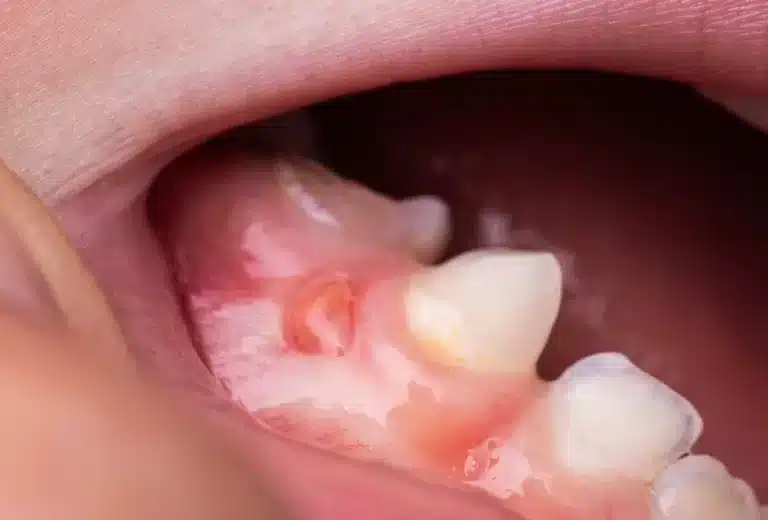
Treatment of periodontal disease
Gingivitis is an early periodontal disease, and treatment for later periodontitis is simple. This initial periodontal treatment is mainly carried out by enhancing the patient’s oral care and performing regular dental cleaning. By treating the causes of periodontal disease, it maintains the health of the tooth flesh, reverses the original inflamed tooth flesh, and restores the healthy tooth flesh.
Periodontitis is a later periodontal disease, and delayed treatment can cause irreversible damage. Here, the treatment of periodontal disease in the later stage can be divided into non-surgical and surgical treatment. Non-surgical periodontal treatment includes not only oral care and regular scaling but also regular deep cleaning. A non-surgical deep cleaning is when the doctor cleans the tartar on the surface of the root with a fine-grained cleaning tool under local anesthesia. Since the tooth root is very sensitive, cleaning is carried out under local anesthesia to reduce discomfort in the procedure. After calculus removal, if you can keep your teeth clean, periodontal tissue will once again adhere to the teeth, the gums will be swollen, and periodontal pockets will become shallow. Therefore, you will need to follow up three months after the treatment to measure the change in periodontal pocket depth to record the degree of periodontal disease.
As for the treatment of surgical periodontal disease, it can be divided into surgical deep cleaning, excisional periodontal surgery and periodontal tissue regeneration surgery. Surgical deep scaling is the same as non-surgical deep scaling in that calcite is removed by a scaling tool, but surgical treatment will make the distribution of tartar clearer, making calculus removal more efficient.
Excisional periodontal surgery is mostly used for large teeth affected by severe periodontal disease, where dentists will remove the affected foot or enlarge the bifurcation position of the root to make oral care easier for the patient and thus control the condition of periodontal disease.
As periodontal disease can also cause flesh and bone to shrink, it may affect the patient’s appearance and may make tooth cleaning more difficult. Therefore, periodontists may also perform periodontal tissue regeneration surgery to regrow the missing bone and flesh.
Does my condition require periodontal treatment?
Periodontal disease treatment can be broadly divided into home oral care improvement, general dental cleaning, non-surgical deep cleaning and surgical periodontal disease treatment. Depending on your initial periodontal examination score (0-4), you will be treated with varying degrees of periodontal disease, and if you have more than 3.5mm of periodontal pockets, you may need to undergo deep cleaning.
What is Deep Clean/Deep Cleaning?
Deep cleaning is when the doctor cleans the tartar on the surface of the root with a younger cleaning tool under local anesthesia. Since the tooth root is very sensitive, cleaning is carried out under local anesthesia to reduce discomfort in the procedure. After calculus removal, if you can keep your teeth clean, periodontal tissue will once again adhere to the teeth, the gums will be swollen, and periodontal pockets will become shallow. Therefore, you will need to follow up three months after the treatment to measure the change in periodontal pocket depth to record the degree of periodontal disease.
How much does deep scaling cost?
Periodontal charting costs $500. Root planning for single tooth costs $500. Full mouth root planning costs $6,000 – $8,000. Surgical root planning for a single tooth cost $3,000. All the treatment above are performed by registered dentists in Hong Kong.
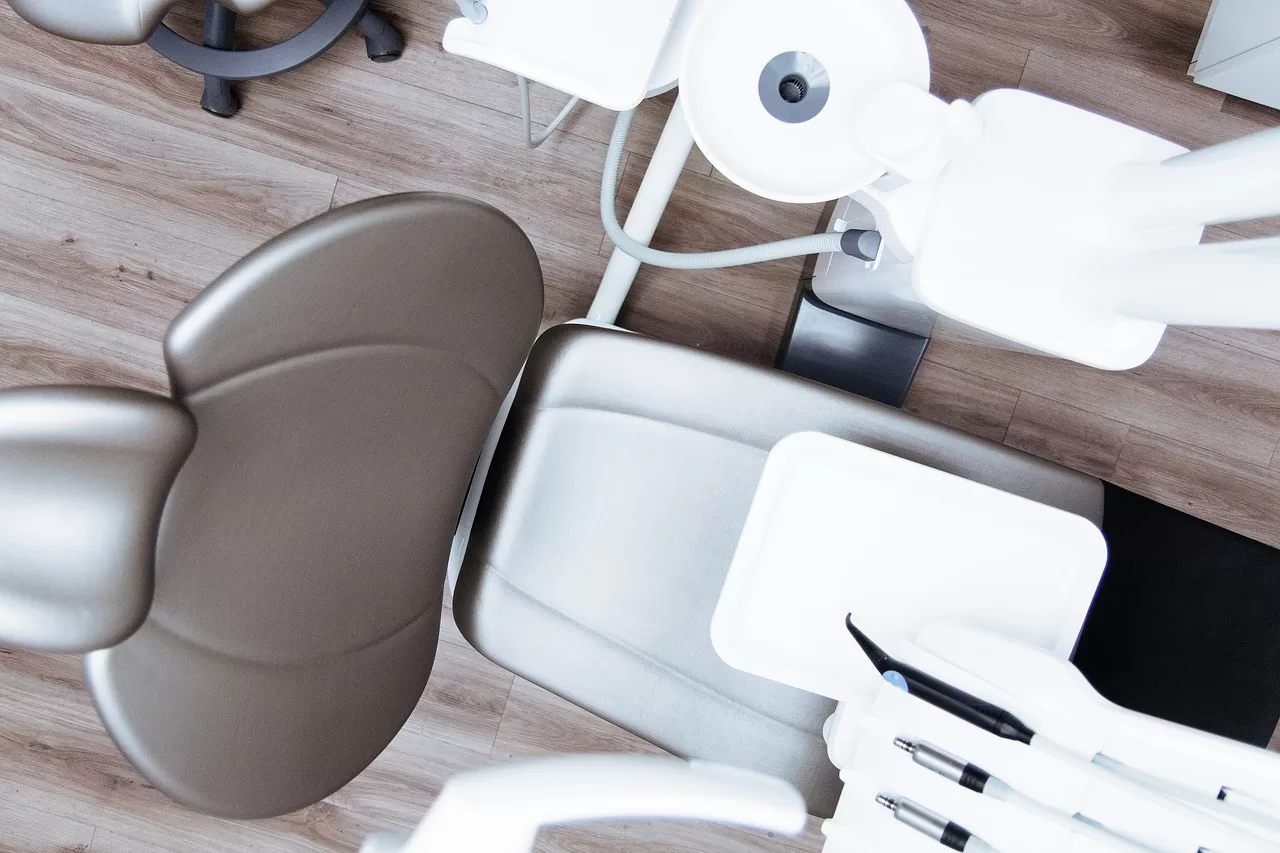
frequently asked questions
Questions about the treatment of periodontal disease
01. When do I need periodontal treatment?
If you have bleeding, swollen gums or loose teeth, you should go to the clinic immediately for examination to avoid worsening the condition and causing the teeth to fall out on their own.
02. What are the symptoms of periodontal disease?
If you have the following symptoms in your mouth:
1) Bleeding gums
2) There is a tone
3) Loose teeth
4) Loose teeth
5) Receding gums
You will need to make more frequent appointments for scaling and check-ups.
03. Who is at higher risk of periodontal disease?
Smokers and diabetics have a higher risk of periodontal disease and should have regular dental cleanups and check-ups to ensure periodontal health.
04 How to make an appointment for periodontal examination and deep cleaning?
You can contact our clinic in real time by clicking the link below to arrange an appointment for periodontal examination and deep cleaning.
06 How much does deep scaling cost?
Periodontal charting costs $500. Root planning for single tooth costs $500. Full mouth root planning costs $6,000 – $8,000. Surgical root planning for a single tooth cost $3,000. All the treatment above are performed by registered dentists in Hong Kong.
07 Is the charge for deep scaling fixed?
Regardless of the severity of periodontal disease, the price of deep scaling is fixed.
08 Is deep scaling performed by registered teeth?
All the periodontal treatments are performed by registered teeth.
09 What is included in the price of deep cleaning?
The price of deep scaling includes the first consultation, local anesthesia and deep scaling and medications.